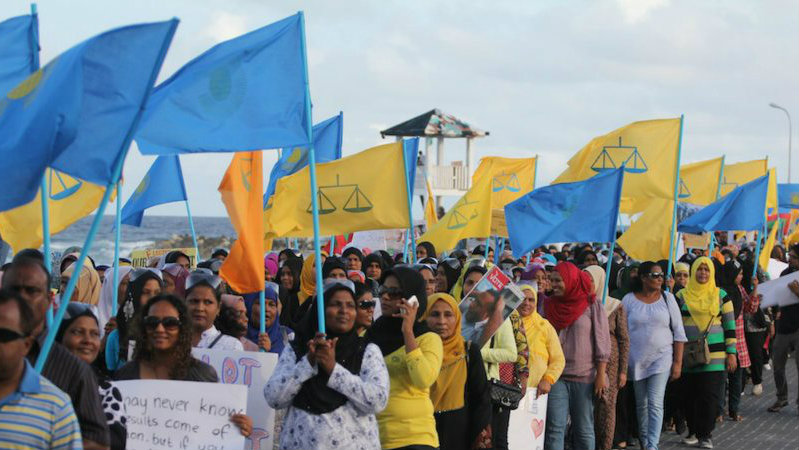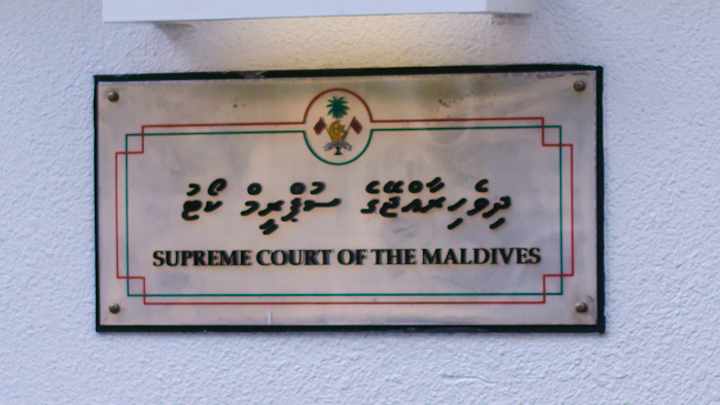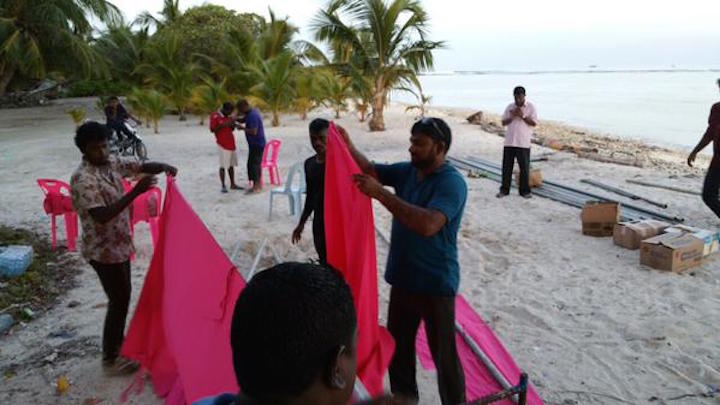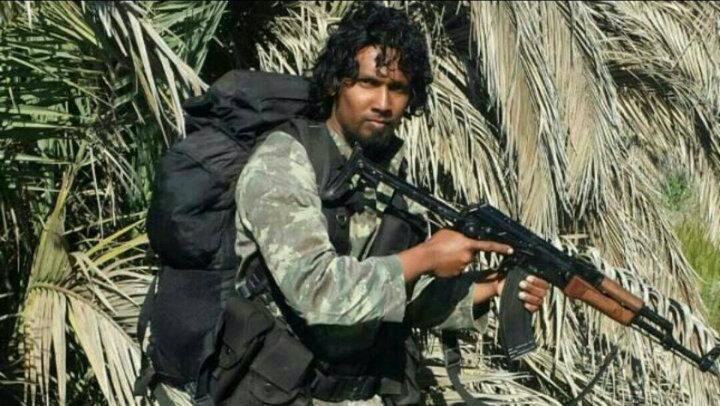The Attorney General’s (AG) office has drafted a new law that would criminalise expressions contrary to national interest or tenets of Islam.
The draft legislation (Dhivehi) on freedom of expression – obtained by Minivan News – states that four types of “expressions contrary to national interest” will constitute criminal offences: encouraging harm to a person or damage to private party, calling for the illegal overthrow of the government, threatening the country’s independence, sovereignty, and security, and accusing a person of committing a hadd offence without conclusive evidence.
Free expression can be restricted on the grounds of national security only if the following circumstances arise: if there is a need to protect the nation or its territory, if Maldivians or foreigners threaten national security with the use of force, and if the government’s ability to defend the nation is endangered.
If the state restricts freedom of expression in such cases, the state must show that the right has been restricted as narrowly as possible, that the restriction is permissible in a democratic society, and that the expression in question poses “a serious danger to national security.”
Hadd offences are crimes for which punishments are prescribed in the Quran or the hadith (sayings of the Prophet), including theft, fornication, making unproven accusations of illicit sex, drinking intoxicants, apostasy, and highway robbery.
The punishment for falsely accusing a person of committing a hadd offence is a jail sentence of between one to three years and a fine of between MVR50,000 (US$3,242) and MVR100,000 (US$6,485)
The bill states that encouraging harm or damage to property – excluding calls for a boycott of goods – and calling for the illegal overthrow of the government can be prosecuted under sections 222 (threatening catastrophe) and 610 (rioting or forceful overthrow of the government) of the new penal code.
Expressions that threaten independence, sovereignty, or national security are punishable by a jail sentence of between three to five years and a fine of between MVR100,000 and MVR500,000 (US$32,425).
The bill states that individuals can be prosecuted for the offences if he or she is unable to prove the truth of a claim under standards followed in civil defamation cases.
The freedom of expression bill was among the government’s 207-bill legislative agenda. It was scheduled to be submitted to parliament during the second session of 2014, but has yet to be submitted.
In May, prosecutor general Muhthaz Muhsin said his office was looking into prosecuting opposition politicians for libel and slander following allegations linking President Abdulla Yameen and tourism minister Ahmed Adeeb with the brutal murder of MP Afrasheem Ali in 2012.
“People are acting however they want. They are trying very hard to defame state institutions in front of the public. The constitution does not give us the right to commit crimes hiding behind a political party,” he said.
“People in responsible posts are publicly accusing others of murder. We are researching on pressing charges against individuals who accuses some one of a crime and which the punishment is hadd.”
Later that month, President Abdulla Yameen threatened to prosecute Adhaalath Party president Sheikh Imran Abdulla, who had said the president and tourism minister would know the truth behind the murder.
“I am being accused falsely. This government will penalise them. I want to file charges against those who are making these accusations. Not that of defamation, but criminal charges. I will file charges against Sheikh Imran,” he said.
Religious unity
The Maldivian constitution guarantees “the right to freedom of thought and the freedom to communicate opinions and expression in a manner that is not contrary to any tenet of Islam.”
The draft freedom of expression bill criminalises insulting Islam, questioning the validity of a tenet of Islam, and threatening religious unity or causing religious disputes, strife, and discord.
Persons accused of anti-Islamic expressions can be prosecuted under section 617 (criticising Islam) of the new penal code.
The bill, however, exempts “constructive opinions” expressed respectfully regarding Islamic tenets for academic or research purposes or at a public forum.
The proposed law states that permission must be sought from the Islamic ministry to preach, deliver religious sermons, or inform the public about religious edicts and specifies a fine of between MVR50,000 and MVR100,000 for violations.
Teaching Islam at a school, college, or university without the ministry’s permission will also be punishable with a fine of between MVR10,000 and MVR50,000.
The 1994 religious unity law will be repealed once the proposed law comes into force. The Islamic ministry must enact new regulations on issuing permission based on education and experience and put in place a mechanism for investigating complaints.
Under the new law, the Human Rights Commission of Maldives will investigate complaints of expressions contrary to national interest or Islamic tenets and forward cases to the prosecutor general’s office.
The bill states that defamation will not be considered a criminal offence and specifies civil remedies. The Supreme Court is mandated to enact regulations specifying rules for determining compensation for damages.
Defamation cases can only be heard in cases where the complainant has suffered damages.
Defamation was decriminalised in 2009 when parliament abolished section 125 of the old penal code, which stated: “Where a person makes a fabricated statement or repeats a statement whose basis cannot be proven, he shall be punished with house detention for a period between one to six months or fined between MVR25 and MVR200.”
Likes (5)Dislikes
(5)Dislikes (0)
(0) 




